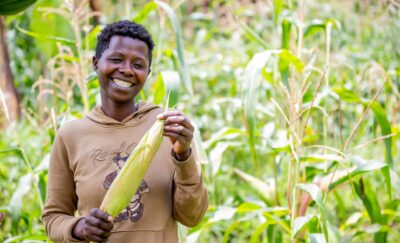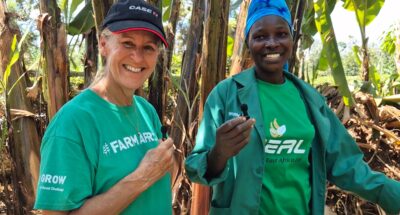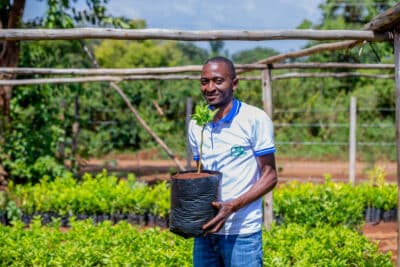Stories
Kenya
3 October 2024
Women supporting women in rural Kenya
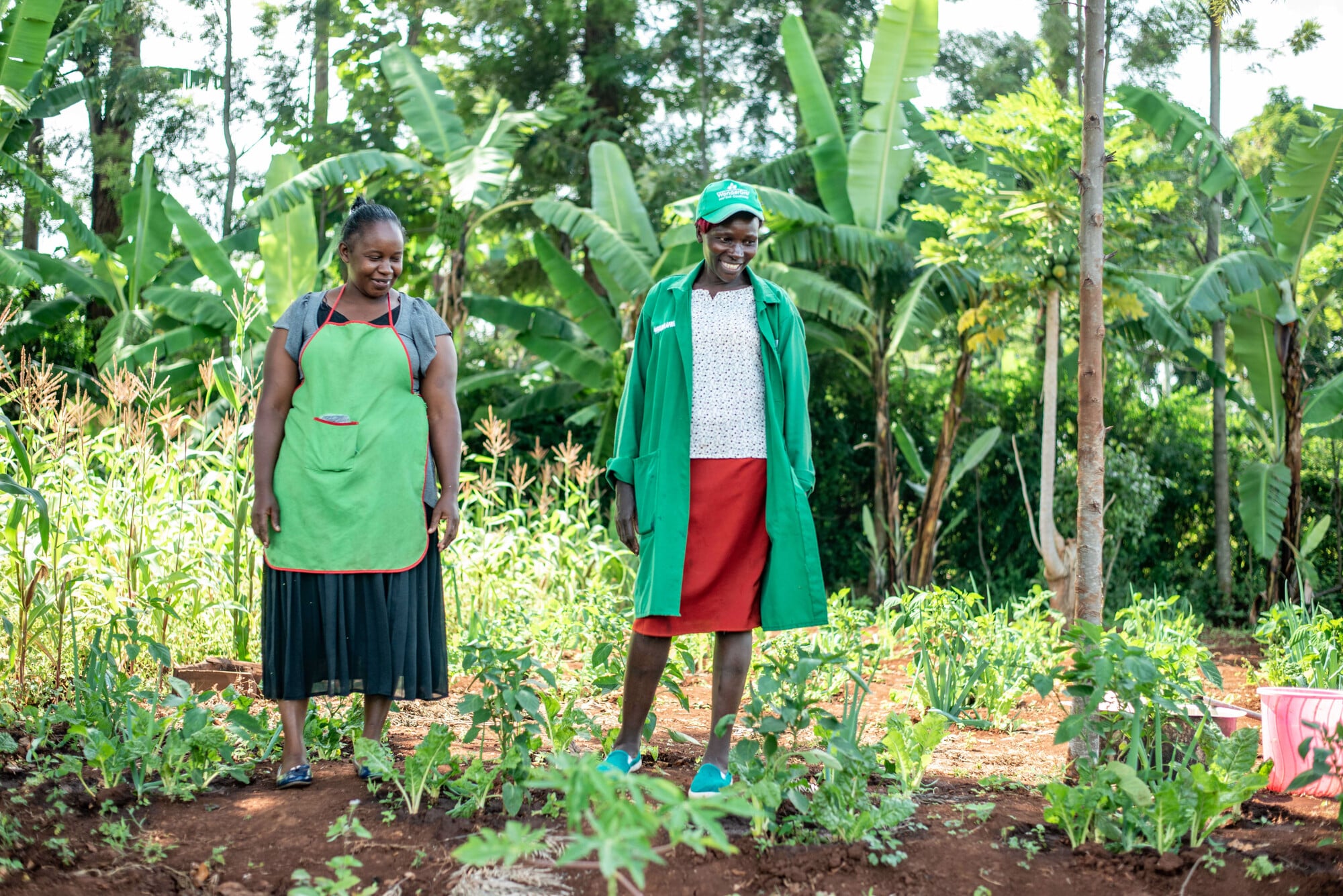
Photo: Farm Africa / Arete
In Kenya’s Embu County, climate change is a daily reality. For Grace, a smallholder farmer with three children, unpredictable rainfall was causing such havoc on her crops, she was ready to give up on farming.
“I was about to quit farming. When the rains were many, most of the crops were swept away. They didn’t do well. Sometimes the rain isn’t enough. Sometimes it’s raining excessively. Sometimes the sun is too hot, you wonder was it wet, has it dried, did the rain come?”
Facing these poor harvests, Grace and her husband struggled to make enough money to feed their family.
A neighbour and fellow female farmer, Juliet, noticed Grace needed help to kick-start her farming and encouraged her to use regenerative agriculture techniques to revitalise her yields and rejuvenate her land.
Juliet, who had been working with Farm Africa through the regenerative agriculture project, invited Grace to training sessions to learn how to farm in a way that improves soil health and boosts soil moisture, even when erratic weather occurs.
“Farm Africa and Juliet helped us, she organises groups where we can go to learn. She has been helping us with planting seeds on demo plots and even coming to our farm and showing us how to space. Learning how to dig and prepare holes, and how to use fertiliser and prepare manure,” Grace explained.
Grace began to see the difference regenerative agriculture could make for herself, “We plant sometimes in portions, some using manure, some using compost, some using fertiliser so we can see which one grows best so we can compare. We have seen a difference and we can actually choose which is the best, which gives us higher yields. It has been of great help.”
And these regenerative techniques have helped Grace cope with the challenging climate too.
"I have realised when you have used these methods from Farm Africa, even if the rains fail, you will get something. This place, there's a lack of rainfall. If you can use manure and fertiliser, you will get good yields. Even if the rainfall is little, you are guaranteed you will get something from it."
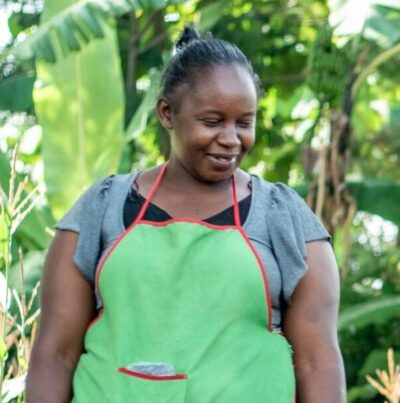
Grace
Embu County, Kenya
With this support from Juliet and Farm Africa, Grace now has a kitchen garden, flourishing beans, plenty of food to eat and sell, plus a small shop to help boost her income.
“I can pay for the school fees for my children and there is enough food so I don’t need to buy food. I have enough for me and my family and even a neighbour. When a neighbour passes by, I can give her some. It has made my life less stressful,” Grace commented.
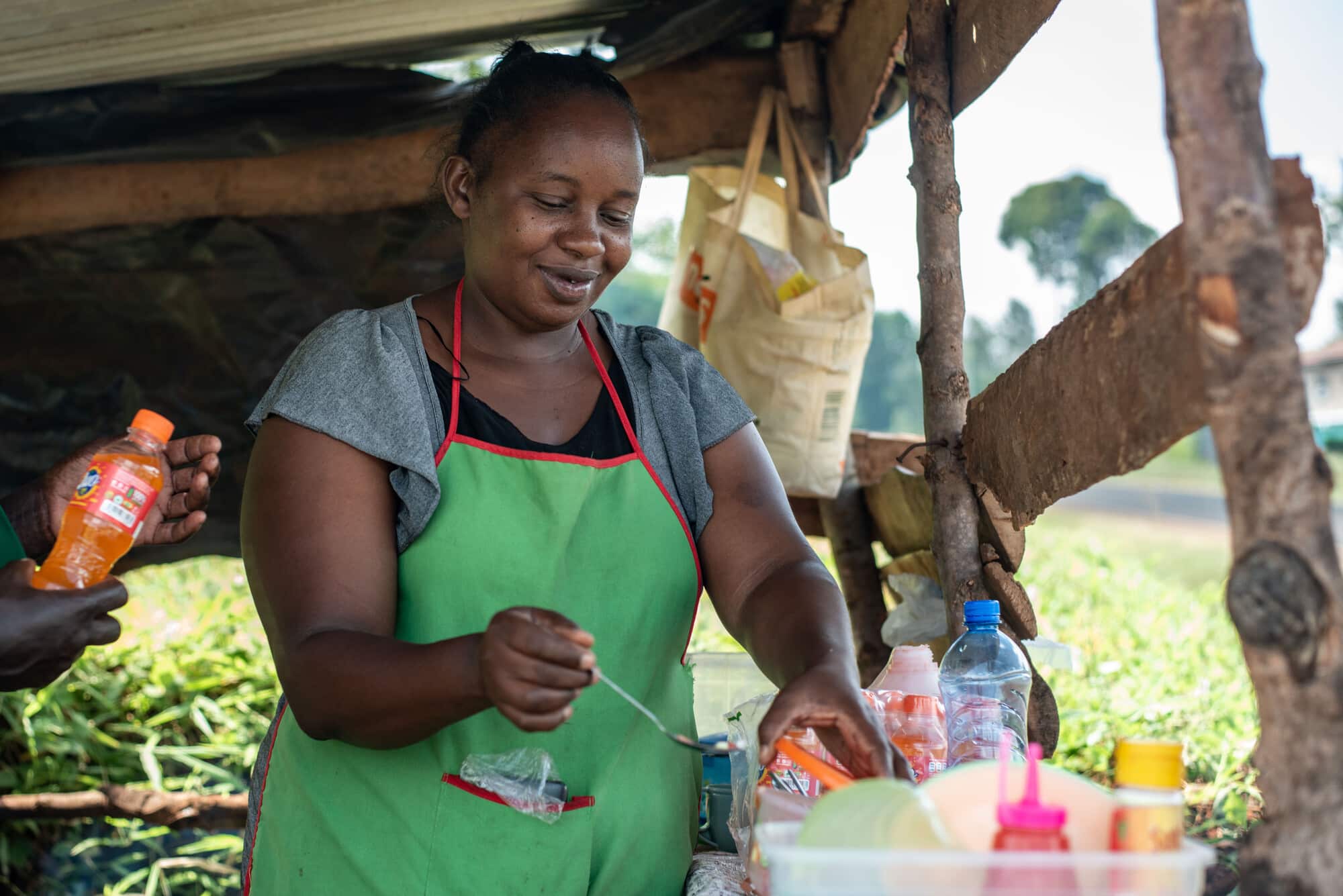
Photo: Farm Africa / Arete
In this rural community, neighbours helping one other is ingrained into daily life. In fact, having Juliet as her local village-based advisor (VBA) has played a pivotal role in Grace’s success.
“Oh Juliet, she’s a very good teacher. She has good advice and if she can see something is not going well, like your cow is not producing, she advises you maybe you can quit farming cows and get a goat, which is more productive. She encourages. We are very happy and grateful to have somebody who is just around here, whom we can enquire for something when we need help.”
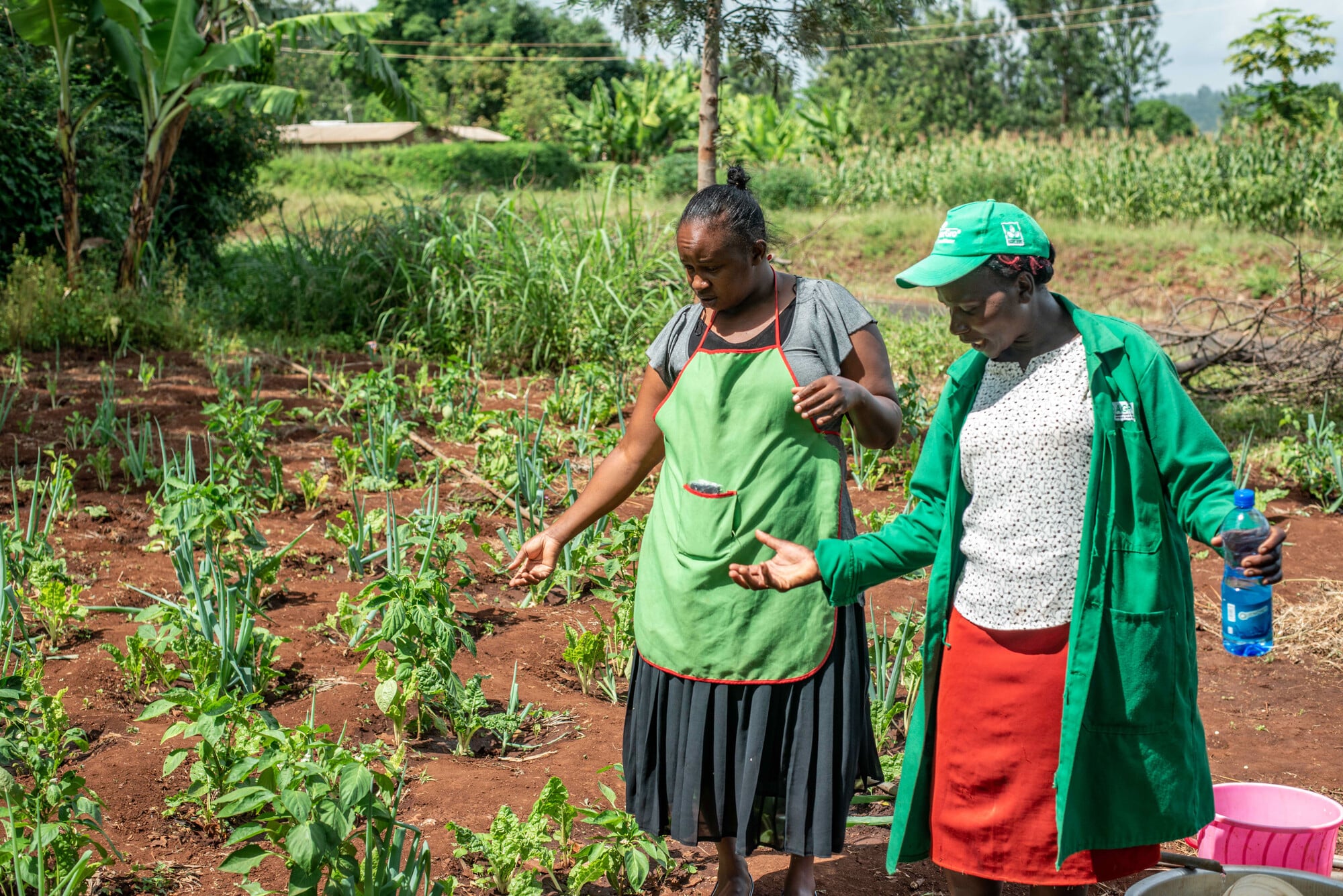
Photo: Farm Africa / Arete
The VBA model is a key part of the regenerative agriculture project, which is funded by AGRA. Farm Africa supports farmers to train other farmers in and around their communities in intercropping, mulching and minimum tillage, ensuring regenerative practices are shared with more families who face the changing climate.
As a VBA, Juliet trains 271 farmers, mostly women. She said, “I enjoy training farmers on regenerative agriculture practices and on starting small businesses to sustain themselves and not to rely on their husbands. I enjoy it so much. I’m very happy when my farmers become successful.”
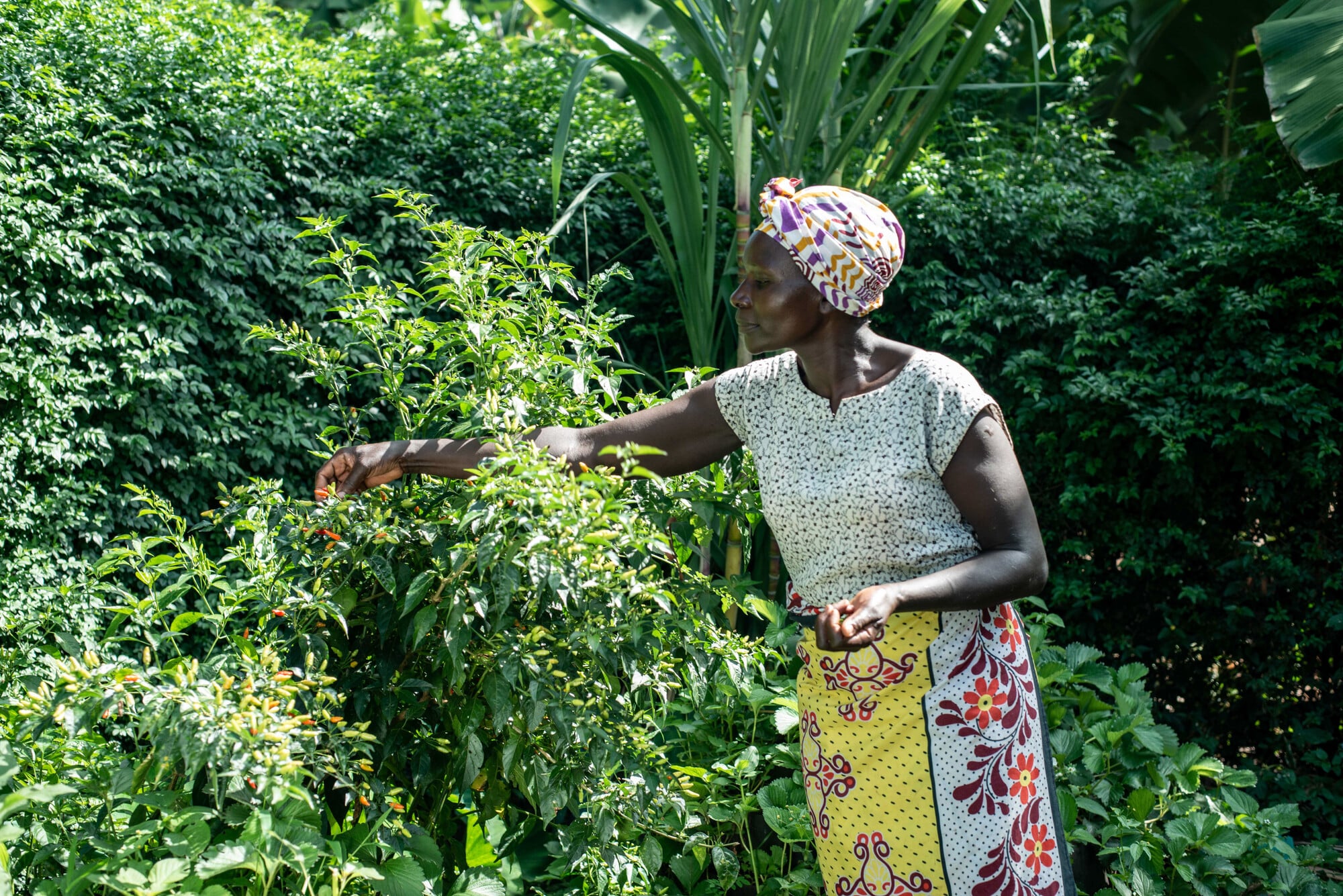
Photo: Farm Africa / Arete
Many of the women in this community are farmers who prioritise growing enough food for their children’s consumption and enough crops to sell so they can pay for school fees.
"In this area, regenerative agriculture has really helped women because before they were harvesting not enough. Previously, women relied on their husbands for their family means. Since learning about regenerative agriculture practices from Farm Africa, they are able to increase their yields, so now they are able to sustain their families by themselves. They don't rely on their husbands."
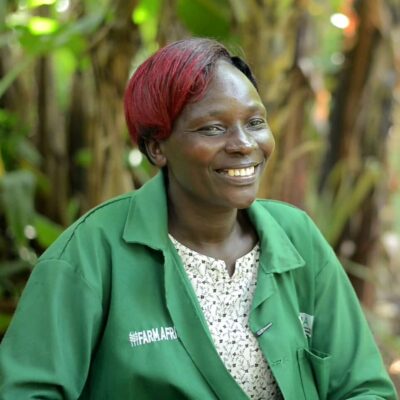
Juliet
Embu County, Kenya
Indeed, Grace plans to use her success from regenerative agriculture to pay for her children’s school fees and improve her home: “If I’m able to make more money, I would like to spend it on improving my homestead. I can pay school fees.”
But aside from improving her livelihood and her resilience to climate change, learning about regenerative agriculture and working alongside Juliet has reignited Grace’s enthusiasm for farming, and she has big plans for the future.
“Now I feel like farming more, I was telling Juliet, it has really amazed me. For the future, I hope I can buy a good farm. I am now farming on leased land, so if I get my own I can farm well.”
